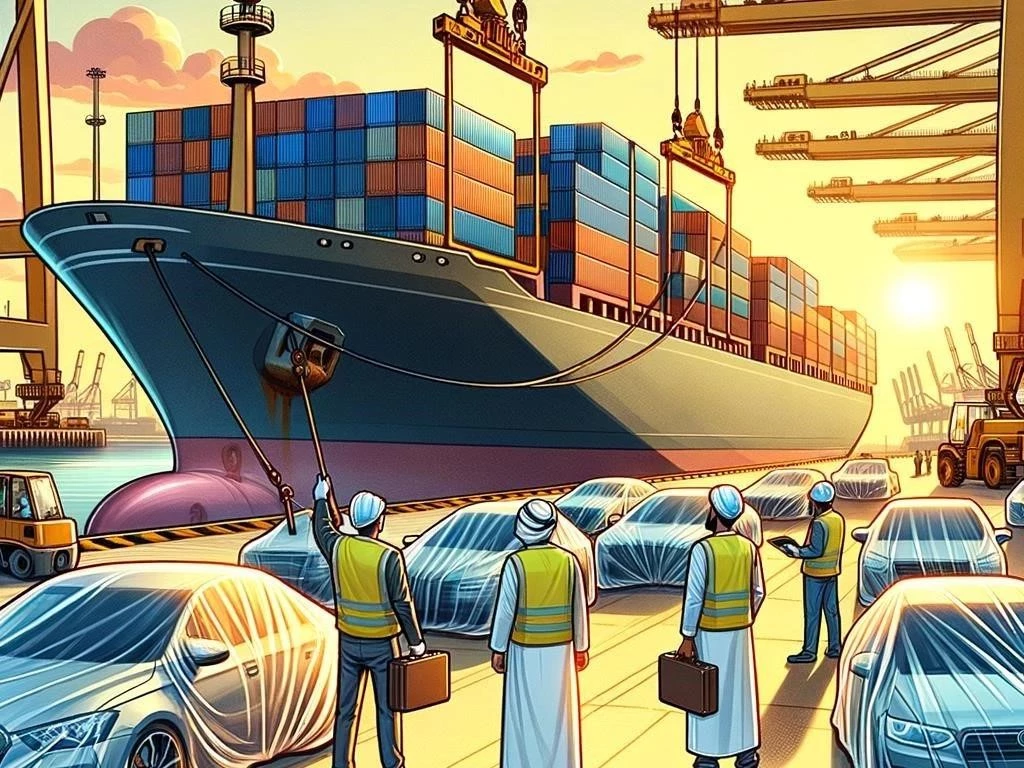How Are Cars Shipped Overseas
Shipping cars internationally involves various methods, including freight forwarding, logistics services, and careful customs clearance to ensure compliance with import regulations and efficient delivery.
Automobile transport is a crucial aspect of global trade, facilitating the movement of vehicles across countries. Various logistics services ensure vehicles are shipped efficiently and safely. Key components include ocean freight, freight forwarding, and customs clearance. Understanding the complexities of shipping costs, delivery timelines, and import regulations is essential for successful vehicle export. Reliable car carriers and shipping methods enhance the overall transport experience.
Key Methods of Vehicle Export
There are several key methods for vehicle export, primarily including roll-on/roll-off (RoRo) shipping and containerized transport. RoRo allows vehicles to be driven directly onto the ship, offering efficiency and reduced handling. In contrast, shipping containers provide added protection against damage and environmental factors. Each method has its advantages, and choosing the right one depends on logistics services, shipping costs, and customer preferences.
2.1 Roll-on/Roll-off (RoRo) Shipping
Roll-on/Roll-off (RoRo) shipping is a popular method for transporting vehicles overseas. This approach involves driving cars directly onto the vessel, minimizing handling and potential damage. RoRo ships are specifically designed for this purpose, featuring ramps for easy access. This method offers cost-effective solutions and faster delivery timelines. It is ideal for transporting multiple vehicles, ensuring efficient cargo handling and simplified port operations during shipping.
2.2 Shipping Containers
Shipping containers are another effective method for exporting vehicles overseas. This approach provides enhanced protection against weather conditions and potential damages during transit. Vehicles are securely loaded into containers, which are then sealed for safety. Container shipping allows for flexibility in transporting multiple cars and different types of cargo. Additionally, it helps streamline customs clearance and ensures compliance with import regulations, making it a favored choice.
The Role of Freight Forwarding in International Shipping
Freight forwarding plays a vital role in international shipping, especially for vehicle export. Forwarders manage logistics services, coordinating transportation from the origin to the destination. They handle customs clearance, ensuring compliance with import regulations and minimizing delays. By leveraging their expertise in global shipping routes, freight forwarders optimize shipping costs and delivery timelines, making the process more efficient and hassle-free for businesses and individual customers alike.
Understanding Logistics Services for Car Shipping
Logistics services are essential for ensuring smooth car shipping processes. These services encompass various aspects, including cargo handling, shipping insurance, and transportation management. Effective logistics help streamline port operations and facilitate timely delivery of vehicles. Companies must choose reliable logistics providers who understand marine transportation nuances, shipping costs, and trade compliance. This choice significantly impacts the efficiency of the overall vehicle export process.
4.1 Customs Clearance and Import Regulations
Customs clearance is a critical step in the vehicle shipping process, ensuring compliance with import regulations. Proper documentation, including invoices and shipping manifests, is necessary for smooth clearance. Understanding the specific regulations of the destination country can prevent delays and additional costs. Freight forwarders often assist with this process, facilitating interactions with customs authorities and ensuring all requirements are met for successful vehicle importation.
4.2 Shipping Costs and Delivery Timelines
Shipping costs and delivery timelines are crucial factors in the vehicle export process. Costs can vary based on shipping methods, distance, and logistics services used. Additionally, factors like customs clearance and port operations may influence overall expenses. Delivery timelines depend on the chosen shipping method, with options like roll-on/roll-off often being faster. Understanding these elements helps customers make informed decisions for their international shipping needs.
Ensuring Safe Marine Transportation
Ensuring safe marine transportation is vital during the vehicle shipping process. Various measures are implemented to protect cars from damage, including using quality shipping containers or proper securing methods on RoRo vessels. Shipping insurance is also recommended to cover potential risks. Regular inspections of cargo handling procedures and adherence to safety regulations further enhance the security of vehicles during transit, minimizing the risk of loss or damage.
5.1 Shipping Insurance and Cargo Handling
Shipping insurance is a crucial aspect of vehicle transport, providing financial protection against potential damages or losses during transit. It covers various risks associated with marine transportation. Additionally, effective cargo handling practices are essential to ensure vehicles are loaded and secured properly, minimizing the risk of damage. Trained personnel oversee these processes, ensuring compliance with industry standards and enhancing overall safety throughout the shipping journey.
5.2 Port Operations and Global Shipping Routes
Efficient port operations are essential for streamlined vehicle shipping processes. Ports must manage the loading, unloading, and storage of vehicles effectively to minimize delays. Global shipping routes play a significant role in determining delivery timelines and shipping costs. Understanding these routes helps logistics providers optimize transport schedules, ensuring timely and secure arrival of vehicles at their destination while adhering to trade compliance and local regulations.
5.3 Trade Compliance in Overseas Logistics
Trade compliance is critical in overseas logistics, particularly for vehicle shipping. Adhering to international regulations ensures that all documentation is accurate and complete, preventing costly delays. Companies must stay updated on import/export laws, tariffs, and customs requirements. Proper compliance reduces the risk of penalties and facilitates smoother customs clearance, enhancing the overall efficiency of the vehicle export process while supporting ethical and legal business practices.








